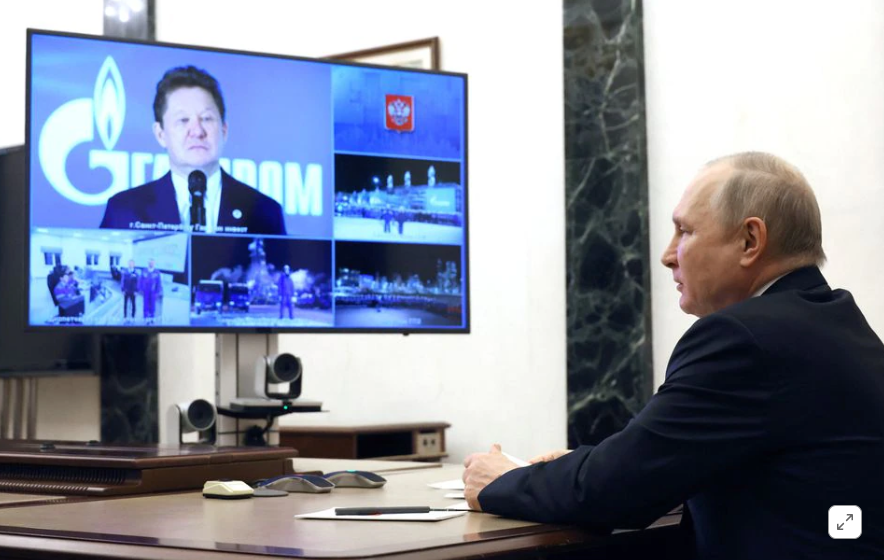Russian President Vladimir Putin takes part in a ceremony launching production at the Kovykta gas field, which will feed into the Power of Siberia pipeline carrying Russian gas to China, via a video link with head of Gazprom Alexei Miller in Moscow, Russia, December 21, 2022. Sputnik/Mikhail Kuravlev/Kremlin via REUTERS ATTENTION EDITORS - THIS IMAGE WAS PROVIDED BY A THIRD PARTY.
Dec 21 (Reuters) - Russian President Vladimir Putin presided over the launch of a major new Siberian gas field on Wednesday to help drive a planned surge in supply to China.
The Kovykta gas field will feed into the Power of Siberia pipeline carrying Russian gas to China. With recoverable reserves of 1.8 trillion cubic metres, it is the largest in eastern Russia.
The launch is part of Russia's strategy to shift gas exports to the east as the European Union cuts reliance on Russian energy in response to the war in Ukraine.
Putin hailed it as a "significant event" for Russia's energy industry and the whole economy. He joined a video link to workers at the site, who were shown lined up on the snow in blue protective suits and white helmets, and gave the order "Start work!" to inaugurate the project.
Russia started selling natural gas to China at the end of 2019 via the Power of Siberia pipeline, which supplied about 10 billion cubic metres (bcm) of gas in 2021 and is due to reach its full capacity of 38 bcm in 2025. Russia is now Beijing's No. 3 gas supplier.
In February, Putin reached an agreement to sell an additional 10 bcm of gas to China from Russia's Far East through a new, smaller pipeline to China's northeast.
Russia also plans to construct another major pipeline, the Power of Siberia 2, via Mongolia with a view to selling an additional 50 bcm of gas per year.
Putin said last week the projects would allow Russia to boost its gas sales to China to 48 bcm annually by 2025 and to 88 bcm by 2030.
Former Russian president Dmitry Medvedev made a surprise visit to China on Wednesday for talks with President Xi Jinping, which Medvedev said had included discussion of the "no limits" strategic partnership that the two countries announced in February.
